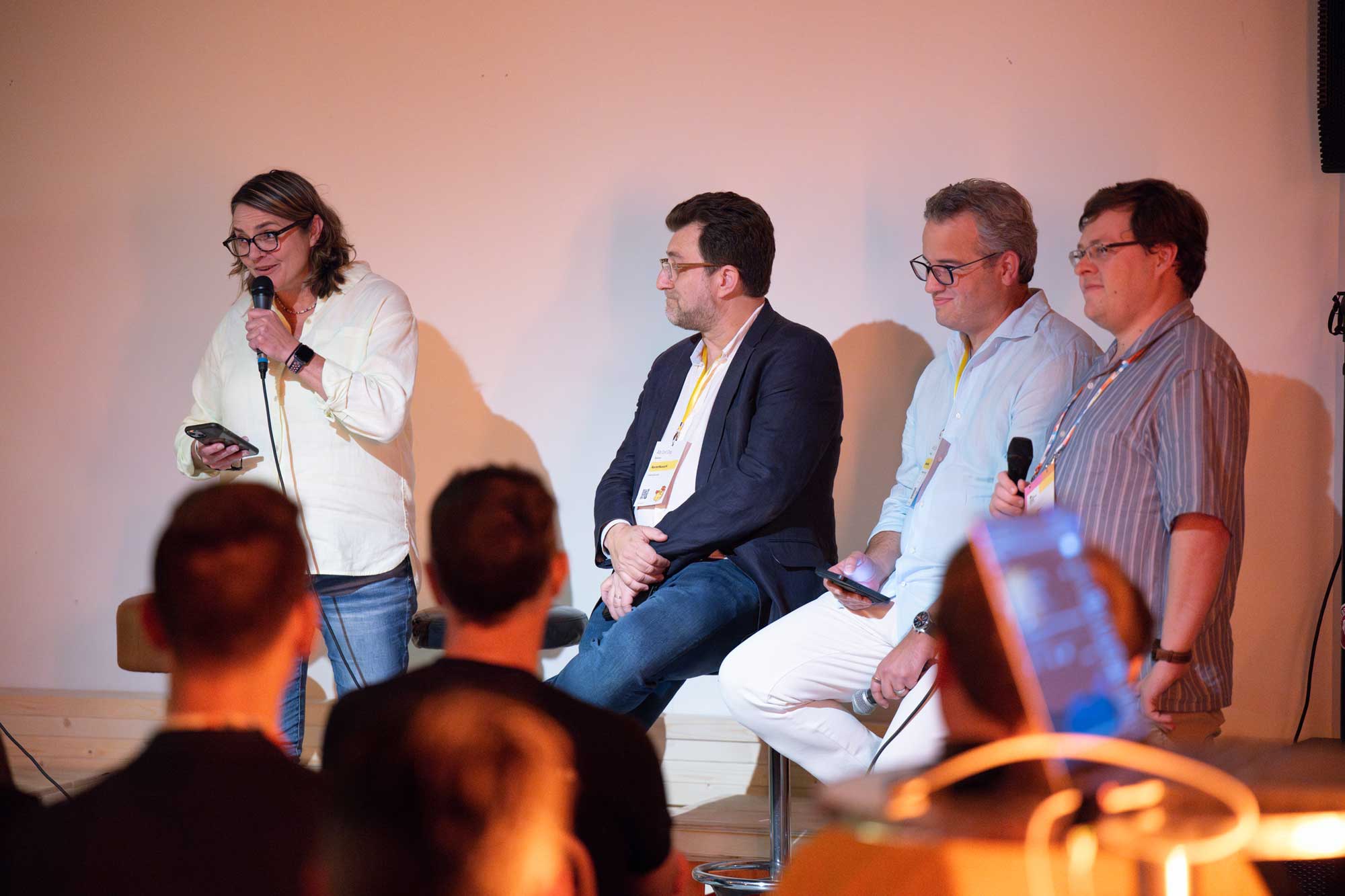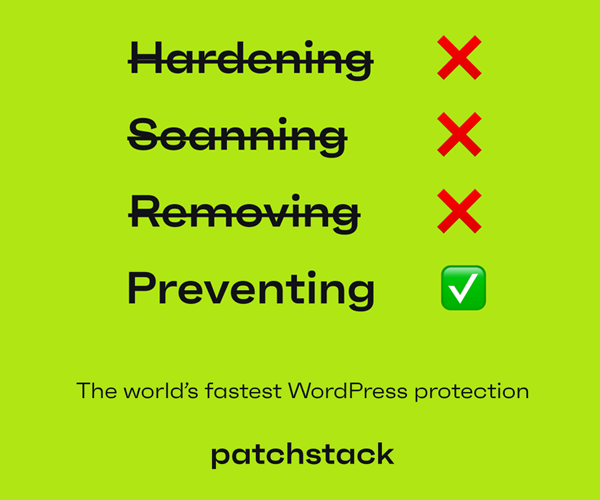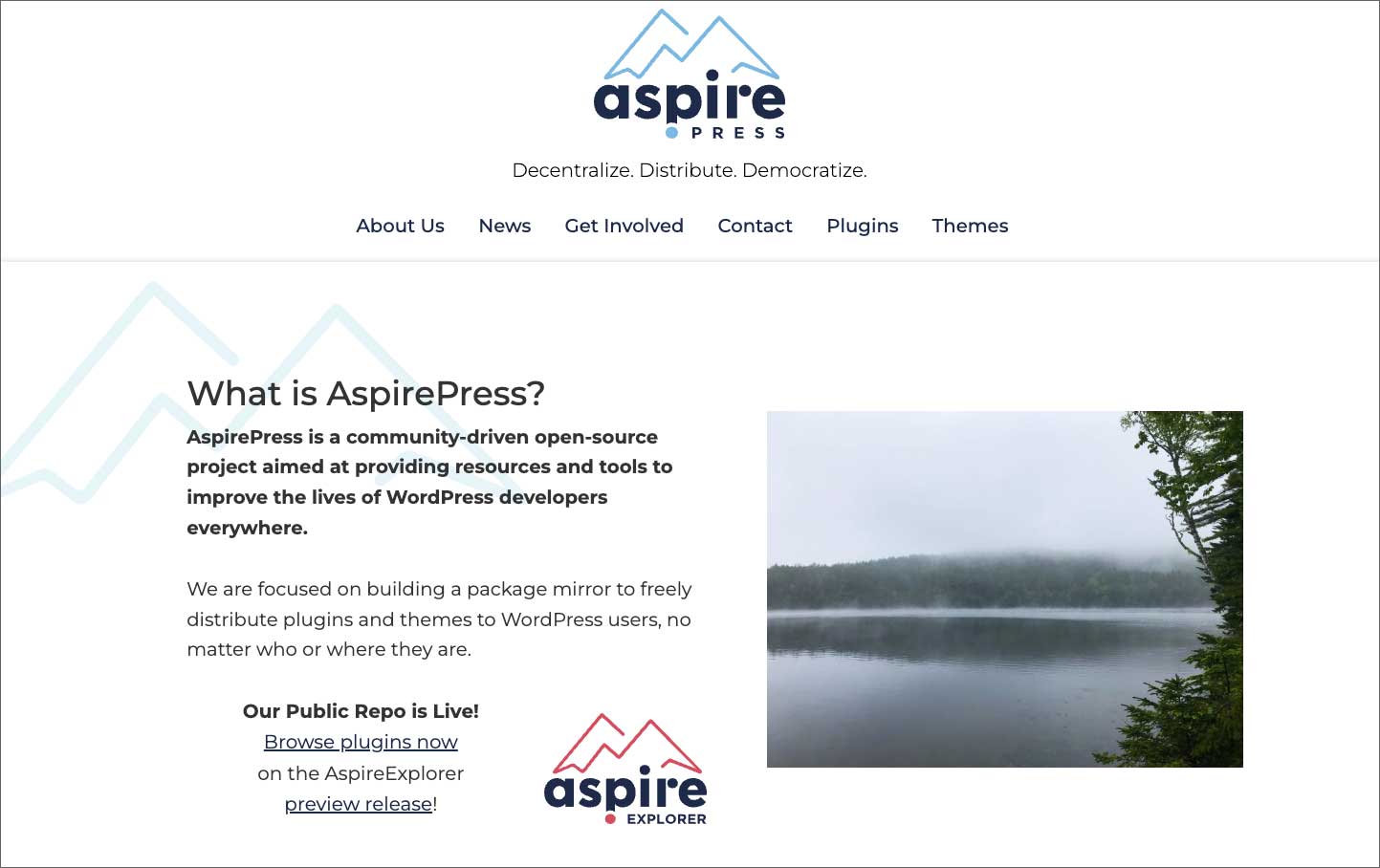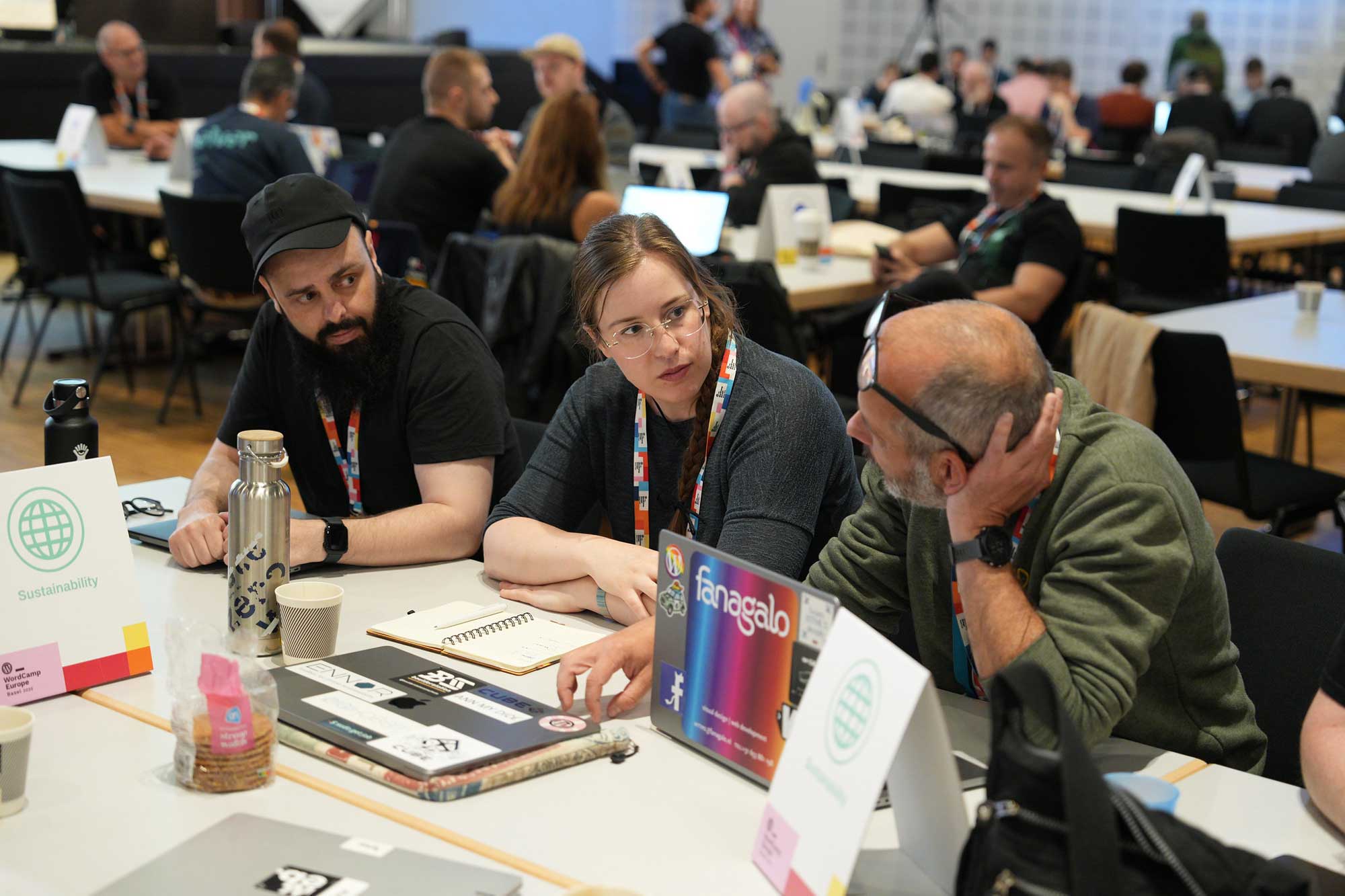The launch of the FAIR Package Manager — built in secret, backed by the Linux Foundation, and announced last week alongside WordCamp Europe — has sparked a wave of conversation across the WordPress ecosystem. But behind the technical promise of decentralization lies something more fundamental: a coordinated response by veteran contributors and organizations seeking to rethink how WordPress software, plugins and themes are distributed and governed.
How FAIR took shape amid calls for governance reform
FAIR didn’t emerge in a vacuum. Frustrations with Matt Mullenweg’s leadership of the WordPress project have simmered beneath the surface for years, and intensified following his public attack on WP Engine during his WordCamp US 2024 keynote last September. The incident sparked widespread backlash and renewed concerns about centralized decision-making.
In December, an anonymous group of veteran core committers and contributors published an open letter calling for “community-minded solutions” and structural reform. A week later, two of the most public figures behind FAIR, Joost de Valk, founder of SEO company Yoast, and Karim Marucchi, CEO of enterprise agency Crowd Favorite called for an end to Mullenweg’s Benevolent Dictator for Life (BDFL) leadership. In January 2025, both were banned from WordPress.org. Rather than stepping back, they worked behind the scenes to rally a diverse coalition of contributors, organizations, and infrastructure partners.
“I helped spark conversations between Joost and Karim, connecting the right minds to tackle a critical challenge,” said longtime contributor Courtney Robertson, a signatory of the open letter. “Having experienced how difficult it can be to get ideas heard — sometimes even bullied out — I’m committed to making space where everyone’s voice matters.”
The contributors behind FAIR
FAIR — short for Federated and Independent Repositories — was developed in just eight weeks by a coalition of as many as 300 people. Some have gone public, while others remain anonymous or pseudonymous due to concerns about retaliation and job security. Still, the breadth of experience and expertise involved is hard to ignore. A list of organizers involved in building FAIR is publicly available in FAIR’s GitHub repository.
At the heart of FAIR’s technical leadership is its Technical Steering Committee (TSC), co-chaired by Ryan McCue, Mika Epstein, and Carrie Dils. All three were elected and are longtime contributors to WordPress. McCue is best known for creating the WordPress REST API and serving on the WordPress Security Team. Epstein led the Plugin Review Team for a decade, while Dils is a seasoned developer and educator.
“We aren’t just designing a structure in which someone could suddenly take over,” said McCue, also a signatory of the open letter. “There are formalized structures in place for how decisions are made, and the Linux Foundation provides oversight. That’s important — we’re serious about open governance.”
FAIR’s open charter outlines the project’s governance model and is publicly available on GitHub. It recognizes all forms of contribution, from code to documentation, community organizing, and education, and grants voting rights to organizers through a TSC election process. The charter also defines how technical decisions are made, term limits for leadership, and how the community can adapt governance over time.
“We don’t have all the answers yet,” McCue said. “We launched with the architecture and core ideas in place, but intentionally left room for community feedback and iteration. As Carrie said on stage at the launch: none of us are as smart as all of us.”
He pointed to contributors like Epstein and others with deep experience maintaining core components as essential to building FAIR. “The real strength of this project is the people,” he said. “We’ve brought together experts who’ve literally spent years thinking about these challenges.”
Colin Stewart, a core committer and maintainer of WordPress’ Upgrade/Install and Filesystem API components, said he joined AspirePress — and later FAIR — because he was alarmed by how easily WordPress’s centralized infrastructure could be controlled. “One man simply decided it would happen. That’s wholly unacceptable,” Stewart said, referring to WordPress.org’s takeover of WP Engine’s ACF plugin. “Decentralization puts distribution in the hands of the community, and federation connects us.”
Andy Fragen, a longtime core contributor known for implementing complex solutions like plugin rollbacks in WordPress 6.6, also joined FAIR. “I’ve been working on this problem for the better part of a decade in Git Updater,” he said. “FAIR should bring safe, secure, cryptographically signed package installation and updates to everyone.” In The Hiatus is Over, Fragen added, “Honestly it’s all very exciting and I’m very much enjoying working with a phenomenal group of collaborators.”
Other people who are also contributing independently outside of their day jobs include Siobhan McKeown (author of Milestones: The Story of WordPress), Drew Jaynes (veteran core committer), Joe Dolson (core committer and long-time WordPress Accessibility Team contributor), Francesca Marano (former Core Team global rep and currently Core Team co-rep), Sam Sidler (past core contributor), Scott Kingsley Clark ( core contributor and Fields API creator), Pascal Birchler (core committer and member of the WordPress AI Team), and Timi Wahalahti (WordPress Community Team program manager).
While many developers have come forward, others have chosen to stay quiet. “There are people who are still very worried about the backlash,” said McCue. “That’s not to say they can’t contribute. But being publicly involved is a different thing.”
The organizations involved
FAIR is a coalition effort with technical infrastructure provided by AspirePress, an independent project founded by hosting company owner Sarah Savage and led day to day by project manager Brent Toderash. AspirePress provides the download and update infrastructure FAIR relies on.
The FAIR plugin redirects key WordPress.org API calls — used for updates to plugins, themes, and core — to an API server running AspireCloud, distributed via the Fastly CDN. “All of the plugin, theme, and core mirroring we rely on is AspirePress’s work,” McCue said. “If they hadn’t been doing that already, we wouldn’t have launched on time.”
FAIR is supported by Fastly through its Fast Forward program for open source infrastructure. And while Bluesky is not directly involved, FAIR team members have spoken with Bluesky engineers about decentralization protocols and adopted several design principles from their approach.
The events and news API in the FAIR plugin dashboard widget is powered by The WP World, a community project created by Marcus Burnette. “Even the small touches reflect how collaborative this has been,” McCue said.
Although no hosting company has officially partnered with FAIR yet, several are testing the plugin and watching its progress. McCue said some are moving slowly — but are interested not just in decentralization, but in what the FAIR protocol could enable for plugin vendors and hosting platforms alike.
The Linux Foundation’s role
FAIR’s governance model is structured according to best practices from the Linux Foundation, which hosts over 1,000 open source projects and provides neutral frameworks for projects like Kubernetes and Node.js.
Mike Dolan, SVP of Legal & Strategic Programs at the Linux Foundation, told Fast Company the foundation’s support was motivated in part by FAIR’s community-driven origins. “This is something that is coming out of the community,” he said. “It’s people who have lifelong and career-long engagement in the WordPress community who are saying we need to go and build this, and they want to work on it together.”
Executive Director Jim Zemlin called FAIR “an important project” that will “give contributors and businesses additional options governed by a neutral community.” Jory Burson, VP of standards at the Linux Foundation and a FAIR participant, also told Fast Company she hopes the project leads to “a reintroduction and reenergization of the community.”
FAIR’s TSC operates independently but is supported administratively by the Linux Foundation. A separate directed fund, still to be formed, will allow sponsors to financially support the project, with governance checks between technical leadership and business oversight.
A reenergized community
FAIR’s goals extend beyond infrastructure. Many contributors see it as a chance to reset the culture around contribution and governance in the WordPress ecosystem.
“We’ve been down about ourselves for quite a while,” McCue said. “There hasn’t been excitement about things. FAIR is energizing people again.”
For McCue, the project also highlights a core strength of open source. “The successful ideas in open source aren’t just handed down in a roadmap. They’re forged through collaboration,” he said. “That’s the competitive advantage we have, bringing people together to build what they care about.”
That spirit is already drawing new contributors. FAIR’s repositories have received a wave of early pull requests, translation help, and design feedback. “There’s been so much energy,” McCue said. “People are testing the plugin, joined the first weekly call, reviewing specs. It’s encouraging to see how quickly people are engaging.”
And while FAIR’s first phase focuses on WordPress, the roadmap stretches far longer. “This isn’t a 16-week project. We see this as a 5, 10, 20-year initiative. What does the next 20 years of WordPress look like? FAIR is one answer to that,” McCue said.
Feature image credit: Kostas Fryganiotis.








Leave a Reply